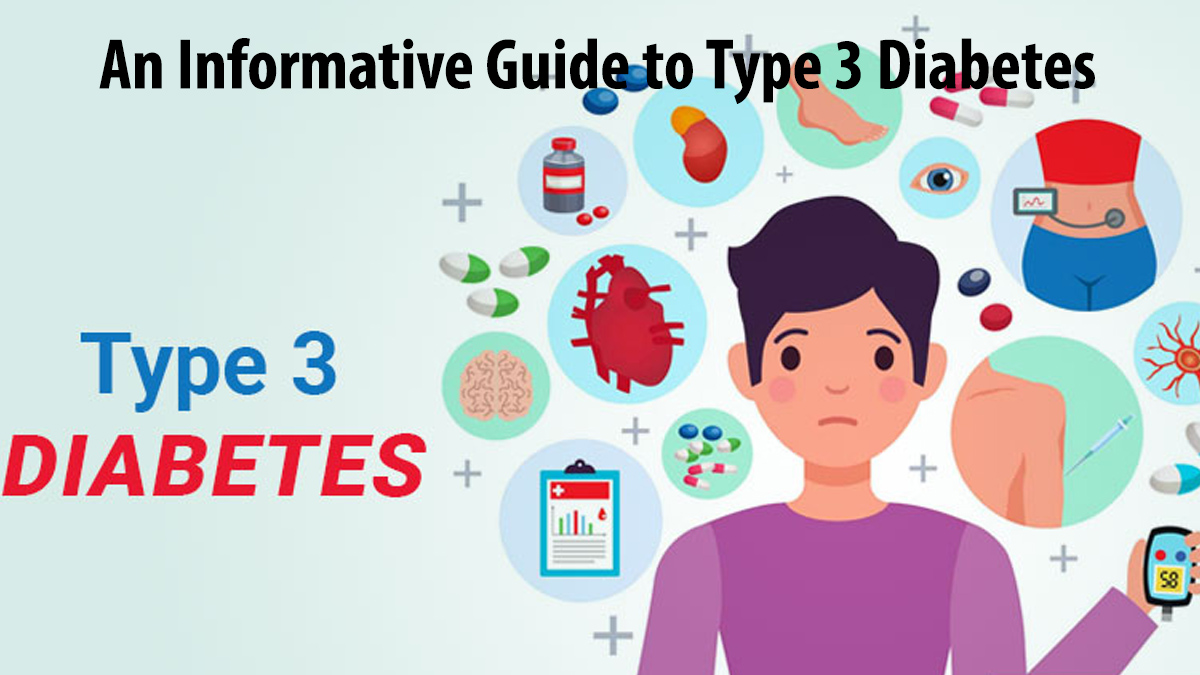In this article, you will learn about Type 3 Diabetes, how to prevent it, and what you can do to slow down its progress. You will also learn the possible connection between Type 3 diabetes and Alzheimer’s disease. If you’re diagnosed with Type 3 diabetes, your treatment options will be much easier to understand. If you have been diagnosed, here are some tips to help you cope with your condition. If you have questions, contact your doctor to schedule an appointment.
What is Type 3 Diabetes?
Alzheimer’s disease is often referred to as type 3 diabetes, although the term is not officially recognized by major health organizations. Alzheimer’s disease is a form of dementia that is linked to insulin dysregulation. It is also associated with an increased risk of developing dementia if a person is diagnosed with diabetes, and is the second leading cause of dementia after cardiovascular disease. However, the cause of Alzheimer’s disease is still not known, but researchers are studying the connection between diabetes and dementia.
There are many symptoms of Alzheimer’s disease. Some are very similar to those of type 3 diabetes. According to the Alzheimer’s Association, the symptoms include: difficulty completing familiar tasks; difficulty in decision-making; and decreased ability to remember things. Sudden changes in personality. While there is no specific cure for Alzheimer’s disease, diabetes can be treated with medication and lifestyle changes. If you suspect that you may be experiencing any of these symptoms, it’s worth consulting a doctor.
What Causes Type 3 Diabetes?
If you have a family history of diabetes, you may be wondering what causes type 3 diabetes. There is no single cause, but there are several risk factors that can increase your risk. Fortunately, you can take action to protect yourself from type 3 diabetes by maintaining a healthy diet and lifestyle. Read on for more information. Until then, keep reading for more ways to prevent this condition and improve your quality of life. There are several treatments available, including diet and medication.
Exercise and good diet are essential for our physical and mental health. By limiting our intake of processed foods, sugars, and carbohydrates, we can prevent the onset of type 3 diabetes. We should consume colourful vegetables, especially those rich in fibre. Fermented foods, such as sauerkraut and kimchi, can also boost our brain’s health. While it is tempting to indulge in a large quantity of high-fat foods, we know that they can impact our insulin levels. A low-fat diet helps to limit the output of insulin, so we should limit our intake of saturated fats and instead focus on lean protein, such as skinless chicken.
The Link Between Type 3 Diabetes and Alzheimer’s D
A link between type 3 diabetes and Alzheimer’s disease has been proposed, and the symptoms of both are quite similar. Type 3 diabetes is a selective form of diabetes with molecular and biochemical similarities to type 1 and type 2 diabetes. People with type 3 diabetes experience memory loss that impacts their ability to do daily tasks, including recognizing faces and places, misplacing things, and reducing judgment based on information. In some cases, symptoms of Alzheimer’s disease are not immediately apparent, but they may be a sign of advancing dementia.
A recent study examined the link between high blood sugar levels and Alzheimer’s disease. Researchers found that people with diabetes had lower insulin sensitivity, which could have increased the risk of dementia. They also found that people with diabetes were more likely to have vascular dementia. Vascular dementia is a precursor to Alzheimer’s and may signal other types of the disease. For this reason, diabetes should be treated if symptoms of Alzheimer’s disease are present.
Symptoms of Type 3 Diabetes
Although many people associate the symptoms of type 3 diabetes with dementia, the disease can occur at any age. It’s important to understand that the early stages of the condition do not show elevated blood sugar levels in laboratory tests. The primary symptom of type 3 diabetes is memory loss, which will significantly impair daily activities and social interactions. Patients with type 3 diabetes may be confused about basic things, lose their train of thought, and develop sudden personality changes.
Insulin resistance in the brain has been linked to decreased cognitive function and memory loss. Researchers believe that deposits of “amyloid beta” in the brain can block insulin receptors, causing the brain cells to become insensitive to insulin. The study tested whether a new formulation of insulin could improve the symptoms of Alzheimer’s. While the results of the study are preliminary, it is an important first step to managing the symptoms of this type of diabetes.
Could You Be at Risk of Type 3 Diabetes?
What are the symptoms of type 3 diabetes? Some symptoms are similar to those of dementia. The Alzheimer’s Association lists the typical symptoms of dementia as forgetfulness, difficulty performing familiar tasks, and misplacing things. Sudden personality changes are also common. If you notice any of these symptoms, you should schedule a doctor’s visit as soon as possible. To lower your risk of diabetes, make lifestyle changes that will make you more active and healthier.
The disease is a complication of type 2 diabetes and it is sometimes referred to as type 3 diabetes. However, type 3 diabetes is not the same as type 3c diabetes mellitus, which is also known as pancreatic diabetes. People with type 3 diabetes are at a higher risk of developing Alzheimer’s disease than those without it. Therefore, diabetes and Alzheimer’s disease should be considered in tandem.
Symptoms of type 3 diabetes include behavior changes, confusion, seizures, and depression. While these symptoms are common with other types of diabetes, you should consult your doctor to see if you have a higher risk of developing this condition. Alzheimer’s disease affects the brain’s structure and function, and insulin resistance may lead to amyloid plaques. Although it is not common to develop Alzheimer’s disease, type 3 diabetes can cause significant damage to the brain.
Treatment for Type 3 Diabetes
The first step in treating Type 3 Diabetes is to understand the underlying cause. Type 3 Diabetes Mellitus is caused by chronic pancreatitis and represents a premalignant state. Its prevalence is estimated at 5 to 10% of all diabetes mellitus cases, but in the past, this condition was underdiagnosed. In this article, we’ll review the cause of Type 3 diabetes and explore the various treatments available for this disease.
As a preventative measure, diabetes patients should focus on eating well. They should include lots of colourful vegetables and a low-fat diet. Fermented foods like sauerkraut and kimchi are also beneficial to the brain. Moreover, a low-fat diet is recommended for diabetics, as it can lower insulin output and promote mental health. However, people who have diabetes should also avoid saturated fats and stick to lean proteins. Skinless chicken, fish, and poultry are also good sources of healthy fats.
Dietary changes are an important component of initial treatment for type 2 diabetes. Adequate intake of fiber-rich foods can reduce the risks of hyperglycemia and pancreatic cancer. Other changes to the diet include avoiding alcohol and smoking, a healthy diet, and physical activity. Some medications also include medications to help the body manage blood sugar levels. When the treatment is ineffective, patients should return to the doctor to consult a doctor.
Methods to Protect Your Brain Against Type 3 Diabe
Although diabetes is a leading cause of dementia, many people are unaware that it can cause significant damage to the brain. Type 2 diabetes is caused by high blood sugar levels and the failure of the pancreas to produce enough insulin to keep the body’s tissues healthy. Type 3 diabetes is a result of insulin resistance in the cells of the body. Insulin resistance in the brain is associated with decreased insulin sensitivity.
Those with type 3 diabetes may be particularly at risk of developing dementia. Studies have shown that loneliness increases the risk of developing Alzheimer’s Disease, so staying social is a good way to delay the onset of the disease. Getting enough sleep is also an effective way to lower levels of beta-amyloid, a protein that interferes with the brain’s communication between neurons. Inflammation can also lead to damage to the brain and eventually to Alzheimer’s disease.
The Bottom Line
If you have type 2 diabetes, you’ve probably heard of this term, too. While type 2 diabetes is a condition in which the pancreas does not produce enough insulin to control blood sugar levels, type 3 diabetes is not as common. This condition is actually similar to Alzheimer’s disease, which is characterized by insulin resistance. It can mimic the symptoms of both types of dementia and Alzheimer’s disease.

